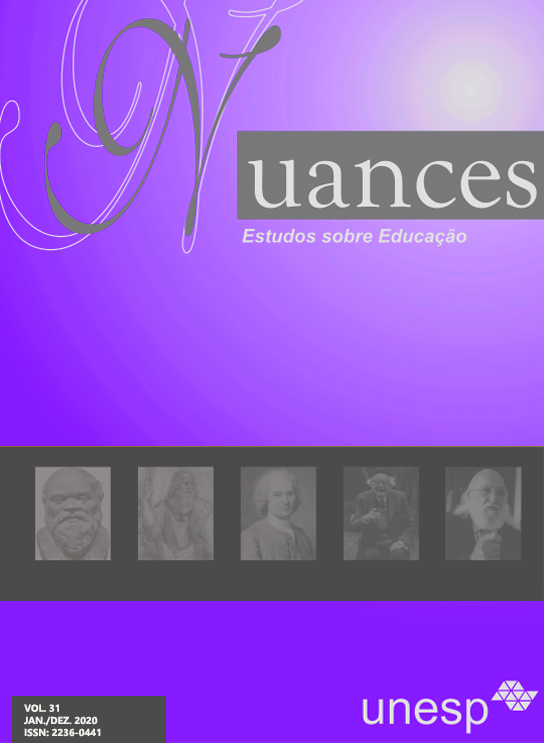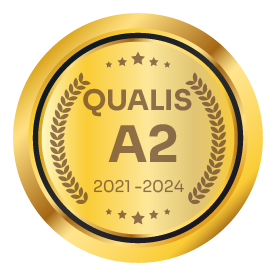Determinantes da prontidão motivacional dos alunos para futura atividade profissional
DOI :
https://doi.org/10.32930/nuances.v31i0.8542Mots-clés :
Motivação, Geração Z, Prontidão Motivacional dos Especialistas, Atividade Profissional.Résumé
A prontidão motivacional do futuro especialista é determinada por vários fatores: o nível de salário, outros incentivos materiais para trabalhar, motivos internos. Os motivos internos da geração atual são um dos fatores que influenciam a eficiência futura das empresas. O objetivo principal do estudo é determinar os fatores que influenciam a prontidão motivacional dos alunos como futuros profissionais. Os métodos de pesquisa são os seguintes: levantamento representativo; questionários; amostra; análise comparativa; sistematização; métodos estatísticos para avaliar a prontidão motivacional dos alunos. Como resultado do estudo, foram delineados os seguintes métodos, através dos quais as empresas irão constituir um sistema de motivação eficaz dos colaboradores, nomeadamente: verificar o nível de entusiasmo e satisfação de um potencial colaborador com o cargo aquando da contratação; oportunidade para potenciais funcionários desenvolverem e aprenderem treinamentos regulares dentro da empresa; definição clara de todos os procedimentos e processos, descrições de cargos, responsabilidades do funcionário; regularidade de informar o empregado sobre sua renda, incentivos tangíveis e intangíveis; reconhecimento constante do valor e da importância de cada funcionário na empresa por meio de recompensas materiais pontuais ou incentivos intangíveis.
Téléchargements
Références
AMABILE, T. M., HILL, K. G., HENNESSEY, B. A., TIGHE, E. M. The Work Preference Inventory: Assessing intrinsic and extrinsic motivational orientations, Journal of Personality and Social Psychology, 66(5), 950–967, https://doi.org/10.1037/0022-3514.66.5.950, 1994.
BAUERS, R., & MAHLER, E. Factors that Contribute to Job Satisfaction of Millennials (Doctoral dissertation, The College of St. Scholastica), 2020.
CUCINA, J. M., BYLE, K. A., MARTIN, N. R., PEYTON, S. T., & GAST, I. F. Generational differences in workplace attitudes and job satisfaction. Journal of Managerial Psychology, 33(3), 246-264. https://doi.org/10.1108/JMP-03-2017-0115, 2018.
DECI, E. L. Effects of externally mediated rewards on intrinsic motivation, Journal of Personality and Social Psychology, 18(1), 105–115, https://doi.org/10.1037/h0030644, 03.02.2020, 1971.
DEEPROSE, D. Smart things to Know about Your Motivation, Capstone Publishing Limited, United Kingdom, 2003, 231, 2003.
DELANEY, M. L., ROYAL, M. A. Breaking Engagement Apart: The Role of Intrinsic and Extrinsic Motivation in Engagement Strategies, Industrial and Organizational Psychology, 10(1), 127-140, 2017.
EBERZ F. M. Generational Differences in the Workplace? Let's Ask the Managers! Global Applications of Multigenerational Management and Leadership in the Transcultural Era, 33. DOI: 10.4018/978-1-5225-9906-7.ch006, 2020.
HENDIJANI, R., BISCHAK, D. P., ARVAI, J., DUGAR, S. Intrinsic motivation, external reward, and their effect on overall motivation and performance, Human Performance, 29(4), 251–274, 2016.
HEYNS, M. M., & KERR, M. D. Generational differences in workplace motivation. SA Journal of Human Resource Management, 16(1), 1-10, 2018.
HEYNS, M., KERR, M. D. Generational differences in workplace motivation, SA Journal of Human Resource Management, 16(0), a967, https://doi.org/10.4102/sajhrm.v16i0.967, 2018.
JONES, J., MURRAY, S., TAPP, S. Generational Differences in the Workplace. Journal of Business Diversity, 18(2). https://doi.org/10.33423/jbd.v18i2.528, 2018.
KINLEY, N., BEN-HUR, S. Intrinsic Motivation: The Science of Commitment, Palgrave Macmillan, London, 35-58, 2015.
KUMARI, N., & SINGH, D. Impact of organizational culture on employee performance. Prabandhan: Indian Journal of Management, 11(6), 53-63. 10.17010/pijom/2018/v11i6/128442, 2018.
MOSHAL, B. S. Principles of Management, Ane Books, New Delhi, 1146, 2009.
NG, E. S., & PARRY, E. Multigenerational research in human resource management. Research in personnel and human resources management. Emerald Group Publishing Limited, 34, 1-41. https://doi.org/10.1108/S0742-730120160000034008, 2016.
RYAN, R. M. DECI, E. L. Intrinsic and extrinsic motivation from a self-determination theory perspective: Definitions, theory, practices, and future directions, Contemporary Educational Psychology, 101860, ISSN 0361-476X, https://doi.org/10.1016/j.cedpsych.2020.101860, 2020.
SALE, J. Mapping Motivation, Routledge, London, 9–24, 2017.
SHEA, C. E. Generational Differences in Intrinsic and Extrinsic Workplace Motivation. doi:10.31979/etd.dd2s-6zxg, 2012.
STRUNZ, H. Betriebssoziologie/-psychologie, Studienbrief 1 – Das Individuum, 41, 1991.
STUHLFAUT, M. W. Evaluating the Work Preference Inventory andits Measurement of Motivation in Creative Advertising Professionals, Journal of current Issues and Research in advertising, 32 (1), 81-93, 2010. Available from: https://www.researchgate.net/publication/254309158_Evaluating_the_Work_Preference_Inventory_and_its_Measurement_of_Motivation_in_Creative_Advertising_Professionals
USMANI, S., ASIF, M. H., MAHMOOD, M. Z., KHAN, M. Y., & BURHAN, M. Generation X and Y: Impact of Work Attitudes and Work Values on Employee Performance, Journal of Management and Research (JMR), 6(2), 51-84.
VAN ROSSEM, A. Introducing a cognitive approach in research about generational differences: the case of motivation. The International Journal of Human Resource Management, 1-41. https://doi.org/10.1080/09585192.2019.1616592, 2019.
What does Cronbach’s Alpha mean? SPSS FAQ, Available from: https://stats.idre.ucla.edu/spss/faq/what-does-cronbachs-alpha-mean/.
ZABEL, K. L., BIERMEIER-HANSON, B. B., BALTES, B. B., EARLY, B. J., & SHEPARD, A. Generational differences in work ethic: Fact or fiction?. Journal of Business and Psychology, 32(3), 301-315, 2017.
Téléchargements
Publiée
Numéro
Rubrique
Licence
(c) Copyright Nuances: estudos sobre Educação 2021

Ce travail est disponible sous licence Creative Commons Attribution - Pas d’Utilisation Commerciale 4.0 International.
Atribuição-NãoComercial
CC BY-NC
Esta licença permite que outros remixem, adaptem e criem a partir do seu trabalho para fins não comerciais, e embora os novos trabalhos tenham de lhe atribuir o devido crédito e não possam ser usados para fins comerciais, os usuários não têm de licenciar esses trabalhos derivados sob os mesmos termos.





